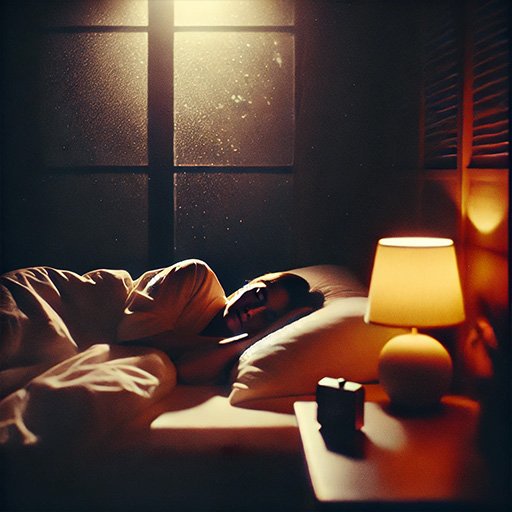Daily Habits to Reduce Anxiety: Lifestyle Changes That Work

Small daily habits can significantly reduce anxiety and build resilience over time.
Contents
- Introduction
- Sleep Habits for Anxiety Relief
- Nutrition's Impact on Anxiety
- Exercise for Anxiety Management
- Spending Time in Nature
- Creating Supportive Daily Routines
- Supporting Research & Best Practices
- Final Thoughts
- FAQ
Introduction
Anxiety affects roughly 40 million adults in the U.S. (about 18% of the population) (Harvard Health), making even routine tasks difficult. While therapy and medications are valuable tools, lifestyle changes play a vital role in reducing anxiety and building resilience. Mental health professionals emphasize that consistent daily habits can make a significant difference in anxiety levels, helping to stabilize your body's stress response and complement other treatments.
This guide explores research-backed daily habits that can help alleviate anxiety, offering practical ways to incorporate them into your life. By making gradual changes to your routine, you can regain a sense of control and calm when facing stress.
Sleep Habits for Anxiety Relief

Quality sleep is foundational for managing anxiety and emotional regulation.
Sleep and anxiety have a powerful two-way relationship – poor sleep worsens anxiety, while anxiety makes it harder to sleep. Research shows that sleep deprivation heightens negative emotions and makes it harder to cope with minor stressors (Columbia University Department of Psychiatry). Even one night of poor sleep can increase anxiety levels in otherwise healthy people.
Prioritizing sleep by maintaining consistent sleep and wake times, creating a calming bedtime routine, and ensuring your bedroom is cool, dark, and quiet can dramatically improve anxiety symptoms. Also, be mindful of caffeine intake, which can mimic and worsen anxiety symptoms when consumed later in the day.
For detailed strategies on improving your sleep, see our comprehensive guide on Sleep Hygiene & Best Practices.
Nutrition's Impact on Anxiety

A balanced diet with anxiety-soothing nutrients provides better emotional stability.
The food we eat profoundly affects our mood and brain function. Blood sugar fluctuations can trigger anxiety-like symptoms, which is why maintaining balanced meals and regular eating patterns is important (Harvard Health). Complex carbohydrates (whole grains, legumes, vegetables) help maintain steady blood sugar and more even moods compared to sugary or highly processed foods.
Research also highlights the gut-brain connection, with about 95% of serotonin receptors located in the gut lining. Some foods that may help reduce anxiety include:
- Probiotic-rich foods (yogurt, kefir, fermented vegetables)
- Foods high in magnesium, zinc, omega-3 fatty acids, and B vitamins
- Whole foods rather than processed options
Limiting alcohol and caffeine is also beneficial, as both can disrupt sleep and exacerbate anxiety symptoms despite any temporary relief they might provide.
Exercise for Anxiety Management

Regular exercise helps regulate stress hormones and improves emotional resilience.
Exercise is one of the most powerful natural remedies for anxiety. Physical activity releases endorphins that act as natural anxiolytics, boosting well-being and reducing stress hormones (Mayo Clinic). Even a single workout can lead to reduced anxiety and better sleep that same day.
The best exercise for anxiety relief is one you enjoy and can maintain consistently. Studies show that even modest activity like a regular walk improves mood and reduces anxiety. For maximum benefit, aim for about 150 minutes of moderate activity per week, but remember that consistency matters more than intensity.
Both aerobic exercise (cardio) and mind-body practices like yoga have strong research support for anxiety reduction. Yoga can be particularly effective as it combines movement with breathing control and mindfulness – skills that help calm anxiety in the moment.
Spending Time in Nature

Nature exposure naturally reduces stress hormones and calms the nervous system.
Research shows that spending time in green spaces significantly lowers stress. Just 20–30 minutes in a natural setting can lead to measurable drops in cortisol, the primary stress hormone (Harvard Health). Studies recommend spending at least 120 minutes per week in nature for optimal well-being benefits (American Heart Association).
Unlike urban environments that can overstimulate, nature engages our attention gently, allowing the mind to quiet down. This helps interrupt rumination (cycles of worried thoughts) that fuel anxiety. Regular nature exposure has been linked to lower baseline stress levels and improved mental health outcomes over time.
You don't need access to wilderness to benefit – look for small ways to incorporate "green time" into your routine: morning coffee on the porch, a lunch break in a nearby park, weekend garden time, or even adding plants to your indoor spaces. Combining exercise with nature (like walking in a park) offers synergistic benefits for anxiety reduction.
Creating Supportive Daily Routines

A consistent daily structure provides stability and reduces uncertainty that fuels anxiety.
When life feels chaotic, anxiety often worsens. Establishing a gentle daily routine creates a sense of stability and control that buffers against anxiety. Studies during the COVID-19 pandemic found that people who maintained regular routines experienced less persistent anxiety than those with disrupted schedules.
A healthy routine indirectly calms anxiety by ensuring you get enough sleep, maintain stable blood sugar through regular meals, and follow through with anxiety-reducing activities like exercise. By breaking your day into manageable parts, routines also help prevent feeling overwhelmed by everything at once.
Start by focusing on the basics: consistent sleep and wake times, regular meals, daily movement, and small calming rituals (like a morning planning session or evening wind-down). Begin with one change at a time rather than overhauling everything at once, which can itself trigger anxiety. Remember that the goal is to create a supportive framework, not a rigid schedule – flexibility is important.
Supporting Research & Best Practices
Research strongly supports these lifestyle interventions for anxiety management. The National Institute of Mental Health advises that healthy lifestyle habits can reduce anxiety symptoms and enhance the effects of therapy. For mild anxiety, these changes may significantly alleviate symptoms on their own, though more severe anxiety typically benefits from combining lifestyle approaches with professional treatment.
Despite the evidence, several misconceptions persist about anxiety management:
- Myth: "Lifestyle changes alone can cure my anxiety."
Reality: While healthy habits can significantly reduce anxiety, severe or chronic anxiety might still require therapy or medication. - Myth: "Caffeine or nicotine help me relax."
Reality: These substances might provide momentary relief but physiologically worsen anxiety over time. - Myth: "If these habits don't help immediately, they don't work."
Reality: While some benefits (like post-exercise calm) are immediate, the full effects of lifestyle changes accumulate over weeks of consistent practice.
These approaches are backed by science and endorsed by reputable institutions. They empower you by providing some control over your well-being through daily choices rather than feeling at anxiety's mercy.
Final Thoughts
Every positive step in your daily routine is a step toward regaining peace amid anxiety. The habits we've discussed – prioritizing sleep, nourishing your body, moving regularly, connecting with nature, and maintaining supportive routines – are investments in your mental well-being and things you can begin today.
Small changes truly add up over time. Remember that managing anxiety is a journey with ups and downs – be patient and compassionate with yourself. Celebrate modest progress and don't hesitate to seek professional support when needed.
Consistency matters more than perfection. Even if you occasionally fall off track, you can always restart the next day. Over time, these healthy habits will likely help you feel calmer, stronger, and better equipped to handle life's challenges – not just by reducing anxiety but by enhancing your overall quality of life.
Get Personalized Anxiety Support
Try Wellness AI for custom anxiety-reduction strategies and personalized guided meditations tailored to your unique needs.
FAQ
How long will it take to feel less anxious after I change my habits?
Some changes produce immediate benefits – exercise often reduces anxiety the same day by releasing endorphins, and a good night's sleep can noticeably improve your mood. However, the deeper, lasting reductions in anxiety typically develop over 4-8 weeks of consistent practice. Think of it like fitness training: one workout helps, but regular practice over weeks creates significant change. You might notice small improvements early (like being less irritable), but give yourself at least a month of consistent habits to experience substantial anxiety relief. The key is persistence – small daily actions compound into major benefits over time.
I have a very busy schedule. How can I fit in these anti-anxiety habits?
Start by integrating habits into things you already do: take a 10-minute walk during lunch, stretch while on phone calls, keep healthy snacks at your desk, or spend five minutes in mindful breathing before meetings. Combining activities often works well – answer emails outside for fresh air, walk with a friend to socialize while exercising, or listen to relaxation audio during your commute. Remember that imperfect consistency is better than nothing – if you can't exercise daily, aim for twice weekly; if cooking every meal is impossible, focus on one healthy meal daily. The goal is making small, sustainable changes that fit your life rather than attempting a complete overhaul all at once.
Do I still need therapy or medication if I do all these things?
It depends on your anxiety's severity. For mild anxiety, lifestyle changes alone might be sufficient. However, for moderate to severe anxiety or diagnosed anxiety disorders, these habits work best alongside professional treatment, not as replacements. Think of lifestyle changes as foundational – they enhance the effectiveness of therapy and medication but aren't always a complete substitute. There's no shame in combining approaches; in fact, research shows that healthy habits can make therapy and medication more effective, sometimes allowing for lower medication doses over time (under professional guidance). The ultimate goal is your well-being, so use whatever combination of tools helps you effectively manage your anxiety.
What if I try all these habits and I still feel anxious?
First, acknowledge any small improvements – reduced frequency or intensity of anxiety still represents progress. If you see no benefit after consistent effort (2+ months), consult a healthcare provider to check for underlying medical conditions (like thyroid issues) or specific anxiety disorders needing targeted treatment. Consider whether you've missed key triggers still affecting you (like caffeine, relationship stress, or work pressure) or if you need more specialized approaches like cognitive-behavioral therapy. The healthy habits you've built remain beneficial for your overall wellbeing regardless, and often provide a stronger foundation for other treatments to work effectively. With the right combination of strategies – which might include professional help alongside lifestyle changes – significant anxiety relief is achievable for most people.